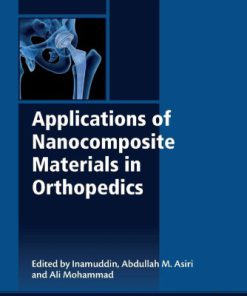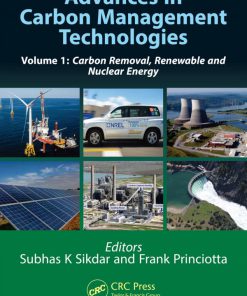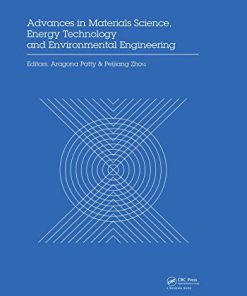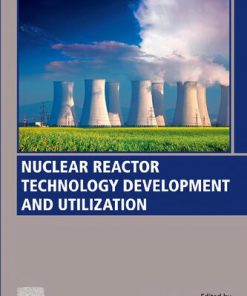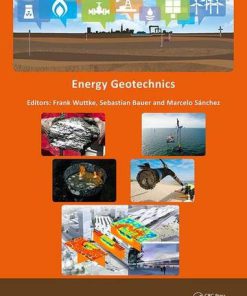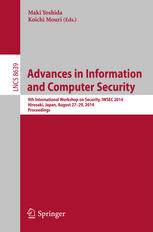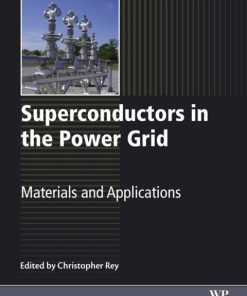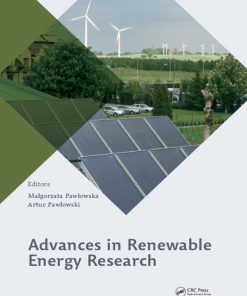Advances in Nuclear Fuel Chemistry Woodhead Publishing Series in Energy 1st Edition by Markus Piro 9780081025710 0081025718
$50.00 Original price was: $50.00.$25.00Current price is: $25.00.
Advances in Nuclear Fuel Chemistry Woodhead Publishing Series in Energy 1st Edition by Markus Piro- Ebook PDF Instant Download/Delivery:9780081025710,0081025718
Full download Advances in Nuclear Fuel Chemistry Woodhead Publishing Series in Energy 1st Edition after payment
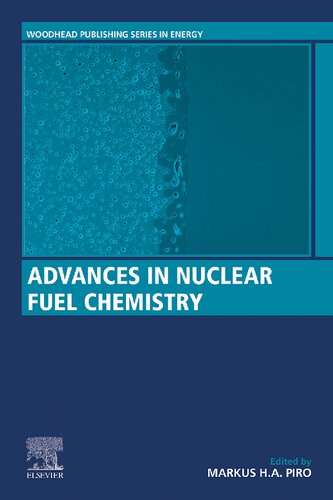
Product details:
ISBN 10:0081025718
ISBN 13:9780081025710
Author:Markus Piro
Advances in Nuclear Fuel Chemistry presents a high-level description of nuclear fuel chemistry based on the most recent research and advances. Dr. Markus H.A. Piro and his team of global, expert contributors cover all aspects of both the conventional uranium-based nuclear fuel cycle and non-conventional fuel cycles, including mining, refining, fabrication, and long-term storage, as well as emerging nuclear technologies, such as accident tolerant fuels and molten salt materials. Aimed at graduate students, researchers, academics and practicing engineers and regulators, this book will provide the reader with a single reference from which to learn the fundamentals of classical thermodynamics and radiochemistry.
- Consolidates the latest research on nuclear fuel chemistry into one comprehensive reference, covering all aspects of traditional and non-traditional nuclear fuel cycles
- Includes contributions from world-renowned experts from many countries representing government, industry and academia
- Covers a variety of fuel designs, including conventional uranium dioxide, mixed oxides, research reactor fuels, and molten salt fuels
- Written by experts with hands-on experience in the development of such designs
Advances in Nuclear Fuel Chemistry Woodhead Publishing Series in Energy 1st Table of contents:
Part A: Fundamentals
1. Reaction kinetics and chemical thermodynamics of nuclear materials
Abstract
1.1 Introduction
1.2 Basic concepts of chemical kinetics
1.3 Fundamentals of chemical thermodynamics
1.4 Thermodynamics of condensed phases
1.5 Statistical thermodynamics applied to gases
1.6 Thermodynamics of nuclear fuel and fission products
1.7 Solution thermodynamics applied to the storage of spent fuel and geological disposal
1.8 Basics of redox equilibria
1.9 Conclusion
Acknowledgment
References
Further reading
2. Experimental methods
Abstract
2.1 Introduction
2.2 Thermal analysis methods
2.3 Spectroscopy techniques
2.4 Nuclear magnetic resonance
2.5 Mass spectrometry techniques
2.6 Secondary ions mass spectrometry
2.7 Diffraction techniques
2.8 Electrochemical techniques
2.9 Conclusion
References
Further reading
3. Computational thermochemistry of nuclear fuel
Abstract
3.1 Introduction
3.2 Fundamentals
3.3 The CALPHAD method
3.4 Applications and limitations of computational thermodynamics
3.5 Summary
References
Part B: Fuel Designs
4. Oxide power reactor fuels
Abstract
4.1 Introduction
4.2 Phase diagrams involving UO2, PuO2, and ThO2
4.3 Binary and higher order oxide phase diagrams
4.4 Doped fuels
4.5 Summary
References
5. Other power reactor fuels
Abstract
5.1 Introduction
5.2 Metallic fuels
5.3 Nontraditional ceramic fuels
5.4 Coated particle fuels
5.5 Summary and outlook
References
Further reading
6. Molten salt reactor fuels
Abstract
6.1 Introduction
6.2 History of molten salt reactor research
6.3 Molten salt reactor renaissance
6.4 Molten salt reactor fuel concepts
6.5 Fuel salt properties
6.6 Measurements and experimental procedures
6.7 Redox potential of the fuel
6.8 Effect of oxygen impurities
6.9 Effect of soluble fission product impurities
6.10 Conclusion
References
7. Research reactor fuels
Abstract
7.1 Introduction
7.2 Fuel geometry
7.3 Fuel materials
7.4 Evolution of research reactor fuel during operation
7.5 Fabrication processes
7.6 Fuel behavior under irradiation
7.7 Corrosion of aluminum research reactor fuel cladding
7.8 Conclusion
References
Part C: Stages of the Fuel Cycle and Other Applications
8. Mining and milling
Abstract
8.1 Introduction
8.2 Mining
8.3 Milling
8.4 Tailings
8.5 Summary
References
9. Uranium conversion and enrichment
Abstract
9.1 Introduction
9.2 Natural uranium conversion processes
9.3 Uranium enrichment
9.4 Conversion of enriched UF6 to UO2
9.5 Conclusion and future trends
References
10. Advances in fuel fabrication
Abstract
10.1 Introduction
10.2 Ceramic fuel fabrication
10.3 Metallic fuel fabrication
10.4 Advanced reactor fuel fabrication
10.5 Conclusion
Acknowledgments
References
11. In-reactor behavior
Abstract
11.1 Introduction
11.2 General description of fuel behavior
11.3 Oxide fuel chemistry
11.4 Other fuels chemistry
11.5 Conclusion—outlooks
References
12. Reprocessing and recycling
Abstract
12.1 Introduction
12.2 Headend processing of Zircaloy-clad fuels for hydrometallurgical separations
12.3 Headend processing for alternative or advanced fuels
12.4 Off-gas treatment and emission controls
12.5 Separations
References
13. Spent nuclear fuel and disposal
Abstract
13.1 Introduction—generalities on spent nuclear fuel
13.2 Spent nuclear fuel management strategies, closed versus open nuclear cycles
13.3 Spent nuclear fuel and high-level waste storage—international practices
13.4 Spent nuclear fuel and high-level waste geological disposal—international practices
13.5 Key processes from operation to disposal through storage that impact the long-term stability of spent nuclear fuel
13.6 Dissolution and alteration of spent nuclear fuel under deep geological repository conditions
13.7 Outlook
13.8 Conclusion
Appendix
References
Further reading
14. Advances in fuel chemistry during a severe accident: Update after Fukushima Daiichi Nuclear Power Station (FDNPS) accident
Abstract
14.1 Introduction
14.2 Chemistry on fuel/core degradation
14.3 Fission product chemistry at severe accident of light water reactors
14.4 Conclusion
People also search for Advances in Nuclear Fuel Chemistry Woodhead Publishing Series in Energy 1st:
advances in nuclear power
advanced nuclear fuels
advanced nuclear fuel cycle
advances in chemical engineering
advanced nuclear fuel cycles and radioactive waste management
Tags:
Markus Piro,ChemistryNuclear,Woodhead,Publishing
You may also like…
Business & Economics - Industries
Computers - Networking




